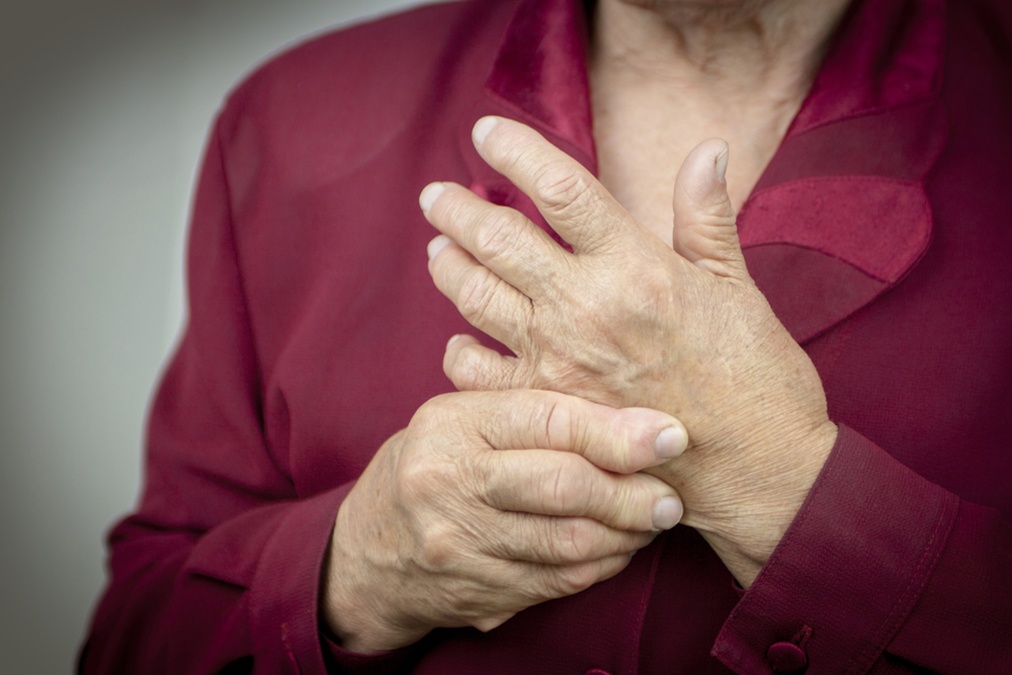 Arthritis is a serious enough disease that disrupts your life enough, but many people with this condition also experience extreme fatigue, making it impossible to lead anything close to a normal life.
Arthritis is a serious enough disease that disrupts your life enough, but many people with this condition also experience extreme fatigue, making it impossible to lead anything close to a normal life.
A team of French scientists has just published a study in the journal Joint Bone Spine, explaining the connection between these two conditions.
And reveals a solution for both.
They analyzed the information of 962 rheumatoid arthritis patients collected by a French COMEDRA cohort study.
This information included their fatigue, which was scored out of 10; with acceptable ranging from 0-2, moderate ranging from 3-4, and severe ranging from 5-10.
It also included their demographic characteristics, social status, physical activity level, arthritis disease activity level, and co-occurring conditions.
The average fatigue score was 3.8 out of 10, with 40% of the patients reporting severe fatigue.
On average, they had 1.8 co-occurring conditions, with the most common of these conditions being anxiety/depression, something which 52% of the participants suffered from.
Depending on the statistical methods used, the most fatigued arthritis patients were female, unemployed, physically inactive, obese, and had any of the following:
1. Impaired ability to function physically.
2. More than one co-occurring condition.
3. Anxiety/depression.
4. Chronic obstructive pulmonary disease.
5. High blood pressure.
6. Sleeping difficulties.
7. Extreme pain.
8. Long disease duration for arthritis.
The more factors they had, the worse both arthritis symptoms and fatigue tended to be.
Thus, working on reducing each of those connected factors will help improve both arthritis and fatigue.
I can relate to this. There are often times when my arthritis was so bad that I felt lightheaded and absent, and I couldn’t even communicate with other people.
But after I managed to reverse my arthritis, I have never experienced any of these symptoms of fatigue again.

 Overcoming IBD
Overcoming IBD Multiple Sclerosis
Multiple Sclerosis Banishing Bronchitis
Banishing Bronchitis Gum Disease Gone
Gum Disease Gone Overcoming Onychomycosis
Overcoming Onychomycosis Neuropathy No More
Neuropathy No More The Prostate Protocol
The Prostate Protocol Brain Booster
Brain Booster
 Ironbound
Ironbound
 Solution for Shingles
Solution for Shingles
 The Bone Density Solution
The Bone Density Solution
 The Ultimate Healing Protocol
The Ultimate Healing Protocol
 The Parkinson's Protocol
The Parkinson's Protocol
 The Chronic Kidney Disease Solution
The Chronic Kidney Disease Solution
 Overthrowing Anxiety
Overthrowing Anxiety The Fatty Liver Solution
The Fatty Liver Solution The Hypothyroidism Solution
The Hypothyroidism Solution
 The End of Gout
The End of Gout The Blood Pressure Program
The Blood Pressure Program
 The Oxigized Cholesterol Strategy
The Oxigized Cholesterol Strategy
 Stop Snoring And Sleep Apnea Program
Stop Snoring And Sleep Apnea Program
 The Arthritis Strategy
The Arthritis Strategy The Vertigo & Dizziness Program
The Vertigo & Dizziness Program The 3-Step Diabetes Strategy
The 3-Step Diabetes Strategy Hemorrhoids Healing Protocol
Hemorrhoids Healing Protocol The Erectile Dysfunction Master
The Erectile Dysfunction Master Weight Loss Breeze
Weight Loss Breeze The IBS Program
The IBS Program The Insomnia Program
The Insomnia Program The Migraine and Headache Program
The Migraine and Headache Program The Neck Pain Solution
The Neck Pain Solution The Menopause Solution
The Menopause Solution The Ejaculation Master
The Ejaculation Master The TMJ Solution
The TMJ Solution The Acid Reflux Solution
The Acid Reflux Solution The Fibromyalgia Solution
The Fibromyalgia Solution The Psoriasis Strategy
The Psoriasis Strategy